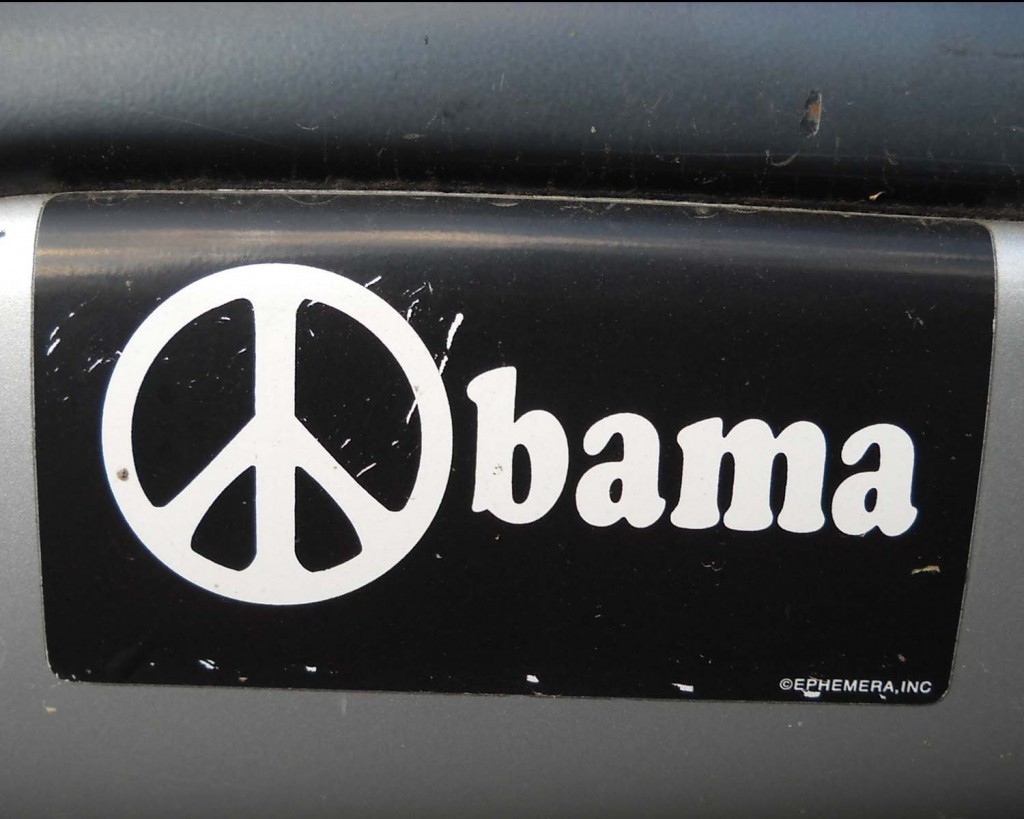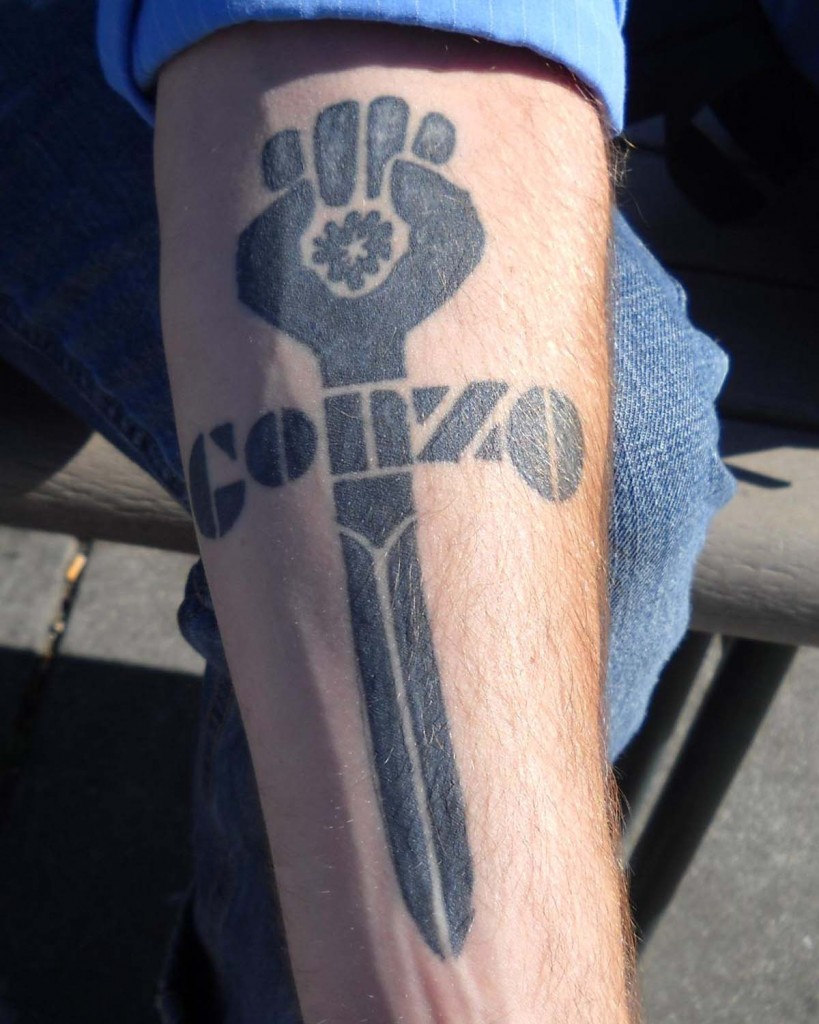“Culture Crash: The Killing of the Creative Class,” by Scott Timberg, paints a bleak picture of the future for bright-eyed and bushy tailed young folks who have assumed a ship load of student debt to go to college and get a head start on a life in the realm of Art.
Are Rebel Artists, who mock capitalism in the hopes that their work will make them independently wealthy, hypocrites?
Society’s real rebels, such as Lenny Bruce, the staff of the Berkeley Barb, and the pioneers of porn, provide a symbolic metaphor for the spectacle of seeing Christians being devoured by lions because Society knows that when an artist becomes too outspoken, the Establishment will seek revenge. Its sorry news for the hippies, but the fact that the counter-coulter has been destroyed by The Establishment means that the old ploy of making rebels impotent by absorbing them into Society’s “in crowd,” is no longer necessary. An artist either gets a corporate sponsorship deal or is a trust fund bohemian; otherwise in a capitalist society the rule is “Ya gotta go along to get along.”
Sure, it’s good for a few laughs to start calling JEB “President-elect JEB Bush” at this point in the election process, but the sad fact is that’s all a liberal pundit can hope to get . . . a few laughs. It’s the Fox pundits who get to echo Liberace’s sentiment: “I cry all the way to the bank.”
So, why should a pundit let himself be exploited so shamelessly? “Culture Crash” makes a solid case for believing that extortion is being used to gain the power to censor the artists.
Maybe a pundit could get an unfair advantage in life by writing a column on a revised Bucket List that asks his audience for a chance to scratch off some of those lofty goals. For instance, if a happy-go-lucky fellow, who wishes he hadn’t gotten rid of his 1968 Chevy van, would like to write a column about always wanting to drive a Ferrari, perhaps a reader would be able to offer the writer a chance to have that experience for a day . . . or a week? . . . or longer?
Perhaps a former co-worker could get the adventuresome Berkeley resident an invitation to this year’s Halloween party at the Playboy Mansion? Could the World’s Laziest Journalist possibly hitch a ride from Frisco to New York City on a private bus? (Does Willie Nelson read our columns? [Willie Neslson anf Family will play the UCB Greek Theatre on July 23 – tickets on sale now!])
We’ve always wanted to experience a real Hollywood “pitch session,” even if it actually occurred at Bo Zenga’s office in Santa Monica or at George Miller’s headquarters on Orwell Street.
Scott Timberg wouldn’t be surprised to learn that we stuff some rather mundane and innocuous items into our columns. Why? Because we can. Do we ever come up with something on our own that we haven’t learned elsewhere?
(Buried lede alert!) Did you know that the poster boy for Rebels, Ernesto “Che” Guevara, wore a Rolex watch?
Felix Rodrigez, the CIA agent who “caught” (killed?) Che Guevara used to wear a Rolex watch, which, he told co-workers, he had personally liberated from Che Guevara, “according to our reliable source.” When our assertion was challenged, we found back up online when we Googled “Che Guevara Rolex”
[Do you believe the urban legend that asserts Che’s life was sparred, and he was put in a prototype of the witness protection program in exchange for some valuable intelligence? Some versions of this story suggest that he relocated to a university town in the San Francisco Bay Area and eventually became a member of his new hometown’s city council.]
The Berkeley student newspaper, the Daily Californian, edition for Monday, February 23, 2015, contained a front page story by Ishaan Srivastava stating that a study done by the UCB School of Law that found urban policies pertaining to the homeless are getting tougher on that group of citizens.
We suggested to “Father Mike,” the political activist leading the protest of the sale of the Berkeley Post Office building, that perhaps since many J-school students are fans of Hunter S. Thompson, the local protest group should invite a member of the Daily Cal staff to spend a week with the protest group and, after doing the fact checking, turn in a Gonzo style story on the experience.
When we were vagabonding about in Australia, we learned in Sydney that a local urban legend asserted that Errol Flynn had slept on the grounds of the downtown cathedral during a homeless phase in his life. That caused us to wonder if Flynn was the most famous example of a success story for a homeless person.
Who, we asked the people at Fort Zint, would be eligible for an annual induction ceremony at the Homeless Hall of Fame and where should such a hypothetical operation set up its operations? What if a philanthropically inclined corporation purchased the Berkeley Post Office building with the stipulation that it be used to house the Homeless Hall of Fame?
New attempts to provide an official definition of who qualifies to be called “homeless” are being made. Since Erneto “Che” Guevara was part of the rebel encampment in the Sierra Maestra mountains of Cuba, could he be eligible to be included in the Homeless Hall of Fame? Would the current owner of his Rolex be disposed to grant permission for it to be exhibited at such a hypothetical tourist destination?
Isn’t there a very wealthy financier who lives in a series of posh hotel suits and is called the homeless billionaire? (Google hint: “Nicholas Berggruen”)
If a benefit concert for the Homeless Hall of Fame were to be held, what famous artists would be qualified to perform if only formerly homeless people were permitted to provide the entertainment?
Isn’t being homeless very similar to being a member of the United States Marine Corp? They say that once you become a Marine you will always be a Marine even when you are no longer “on active duty.” Is becoming homeless an irreversible experience similar to loosing one’s virginity?
It seems to this columnist who stayed in a succession of hostels while touring Australia, that the situation in Berkeley is being manipulated into a status seeker’s issue. If a person has always had a home, does that make him (or her) a better citizen in a country that (ostensibly) believes in equality or would the friendship of a (formerly homeless) world famous celebrity be something to inspire selfies galore? Is there any aristocrat in Berkeley who would not want the inventory of their personal possession sullied by the inclusion of Che Guevara’s Rolex on that list?
If Scott Timberg is accurate with his prediction that the era of corporate subsidized artistic creativity will eliminate spontaneity and serendipity from the pop culture scene altogether might be an example of predestination, but until that happens, the World’s Laziest Journalist intends to be a rogue champion of arcane, esoteric, and idiosyncratic bits of information.
Is this a good time to insert a plug for Michael Parenti’s newest book, “Profit Pathologes and other Indecencies”?
After learning about the Daily Cal story, we sent a link to some interested parties. We later learned that while we were sending a message to Berkeley’s Ninja Kitty, he was getting busted for sleeping. Would it then be safe for us to assume that a kid can be arrested for sleeping on Shattuck Ave. in the B-town business district, but a student who sleeps in a UCB classroom is safe? Isn’t that discrimination?
[Photo Editor’s note: If the columnist can be serendipitous in the selection of items for the column, then the selection of the photo to illustrate a column must also have the latitude to be a tad impulsive, eh?]
Singer Dean Martin was the source for this week’s closing quote. After the music group The Rolling Stones were featured on his TV variety show, he asked his audience: “Would you want your sister to marry a Rolling Stone?”
Now the columnist will direct the disk jockey to play all the tracks on the Rolling Stones’ Hot Rocks double album, all the tracks on the More Hot Rocks album, and all the tracks on the “Exile on Main Street” album. We have to start compiling a list of celebrities and business executives who were homeless earlier in life. Have a “sundowner” type week.




Berkeley looks back
Approximately 50 years ago, a traffic ticket was issued and put on a car being operated by a member of the University of Scranton Class of 1965. The fellow came along as the ticket was being written and he tried to talk his way out of it. Other students passing by stopped to watch. A crowd partial to the plight of the student gathered and thing began to reel out of control. More police arrived and then a round-up of students started. Later in the afternoon, a local radio station reported that 18 arrests had been made. The chancellor of the Jesuit University went down to the local police station and by the time the local morning newspaper was delivered the next day, no arrests had been made and no incident had occurred. Unless someone had been there to see it happen, most Scrantonians would ever know about it. The incident was quickly forgotten and (mostly) disappeared from the annals of Scranton History.
On October 1, 1965, a student at the University of California’s Berkeley campus, Jack Weinberg, was proselytizing from a card table on Sproul Plaza about the Congress of Racial Equality (CORE). The topic was in direct conflict with school rules which expressly forbade political oriented activity on the campus where a scholarly atmosphere was traditional. Again, events spun out of control and eventually students surrounded the police car where the fellow who was being arrested was sitting. Someone urged the students to lie down all around the police car to deter the car from proceeding to the police department. A stand-off situation developed.
One student, Mario Savio, in an attempt to defuse the volatile situation, jumped on top of the police car (he removed his shoes so that he wouldn’t scuff the paint) and began to give a speech. That example of impulsive extemporaneous oratory became an iconic moment and would be recognized around the world as the start of the student activism era in the USA and Berkeley’s Free Speech Movement (FSM).
A rally to mark the fiftieth anniversary of the events which spawned the Free Speech Movement was held Wednesday, October 2, 2014, at the same location, Sproul Plaza, and drew a crowd of several hundred which included current students and (by a show of hands) a goodly number of individuals who had witnessed the original confrontation.
It was a melodramatic moment for them when the voice of Mario Savio was replayed via electronic means. Cynics who appreciate heavy-handed audience manipulation couldn’t help but notice that it would have reduced the older folks to tears if the event producers had played Jerry Lee Lewis’ song “I wish I was 18 again.”
An assortment of journalists was on hand to record the new event for posterity. Local newspaper and radio news reporters were there as well as a platoon of photographers and at least two TV news crews.
One of the reporters was representing the Paris publication Le Monde newspaper and the reporter, Cerine Lesnes, mentioned that she was new to the area. She had been reassigned to the Bay Area because that paper had just opened up a news bureau in San Francisco.
Since newspapers have been cutting the use of satellite offices as a cost cutting measure, this bit of trade talk caused us to schedule a bit of subsequent fact checking to see if this is an anomaly or if it can be used to write a future trend-spotting column about a turnaround in the newspaper industry.
Ironically the ceremony to mark the fiftieth anniversary of the start of the Free Speech Movement fell on the same day that the new issue (Vol. 49, No. 1) of the Bay Guardian carried the latest installment of Project Censored’s annual list of the year’s top ten underreported stories. Free Speech is about the unimpeded flow of information; contemporary Mainstream Media (MSM) is about corporate propaganda masquerading as news.
Fifty years ago students clamored to have their voices heard on social issues, but in the interim, the main stream media in the United States has become a sad pathetic echo of what the citizens think they are getting; i.e. enough information to make well informed decisions in the voting booth.
We explained briefly to the Le Monde reporter, why there would never again be student anti-war protests in the United States (and Berkeley in particular). The cost of tuition has priced many Americans out of the market for a top notch university education. They have been replaced by students from wealthy foreign families who don’t care what the USA does, the wealthy Americans who are training to take their place as the community leaders of the future (and not about to rock the boat) and kids who are signing up for a life of indentured servitude via student loans. The student loan contingent can be stripped of their academic standing if they get arrested in a demonstration but they would still have the loan to repay, hence they operate on the “ya gotta go along to get along” principle. (Google hint: to learn more about how the Frisco area looks to a reporter from Paris: twitter dot com slash BicPictureCL)
The irony of celebrating free speech while economic reality stifles dissent and student criticism in political issues seems to contradict the essence of what the day was meant to promote.
Many Americans think that the valuable role played by newspapers has been supplanted by the Internets but reality contradicts the idea that “you can look it up on the Internets.”
Last week, we did some fact checking on the Internets and concluded that the New York Times’ Maureen Dowd had fumbled a great opportunity to gather material for a top notch column. Subsequently we learned that she had written what may be her best column ever with a lead sentence which may get her into future editions of “Bartlett’s Familiar Quotations.” In her column for September 20, 2014, she opened with this sentence: “WHEN Willie Nelson invites you to get high with him on his bus, you go.” (Odds are that even the Pope would concur.)
There are times when the World’s Laziest Journalist wants to check something we have written in the past and our attempts to find it online have been unsuccessful. Our opinion of the quality of the information available on the Internets keeps shrinking.
Initial critical assessments of the Internets potential asserted that it would become just another sales tool for corporate America and that the promise of developing unique voices that could build an audience and clout was doomed to be vetoed by the corporate leaders who will be very reluctant to foster any means that would encourage and supply an opposing point of view.
At first glance, the UCB event Wednesday was a chance to cover (and run) a light-hearted look laden with nostalgia back at some Sixties lore. A closer examination of the changes that have occurred in the last fifty years would require a bit more than a quick column geared to please in the skim and click age.
The Congress on Racial Equality isn’t in the news much lately but if you look around on the internets you will find that the assertion that a person of African-American heritage is shot by a police agency (on the average) of once every twenty eight hours is ubiquitous.
Fifty years ago, 18 year old young men were being drafted to fight in conflicts started by politicians whom the draftees couldn’t vote for until three years later. Now new military action can be sanctioned by a budget vote held late at night. The all volunteer military is staffed by young folks who can’t afford to go to college and don’t want to be burdened by student loans.
Corporations are still reaping large tax benefits from Prop 13. The loss of property tax revenue has meant that tuition costs in California have become astronomical (metaphorically speaking) and so the people struggling with student loans are probably not thrilled about the fact that corporations are still reaping benefits from that decades old bit of legislation.
Have things changed via the Free Speech Movement or is it a case of the more things seem to change the more the reality is “same ole, same ole”?
The words of Mario Savio will be quoted extensively in various “Week in Review” round-ups and so, to be different, we’ll quote Andy Gowdy who once said to Chef Teddy Owens: “For your birthday, we’ll take you up to Vegas and get you some new scars.”
The disk jockey was tasked with finding songs about being arrested, so he will play
Johnny Cash’s “Live at Folsom Prison” album, and Merle Haggard’s “Mamma tried” and Toby Keith’s “I’ll never smoke weed with Willie again.” We have to go post bail for a buddy. Have a “‘get out of jail free’card” type week.